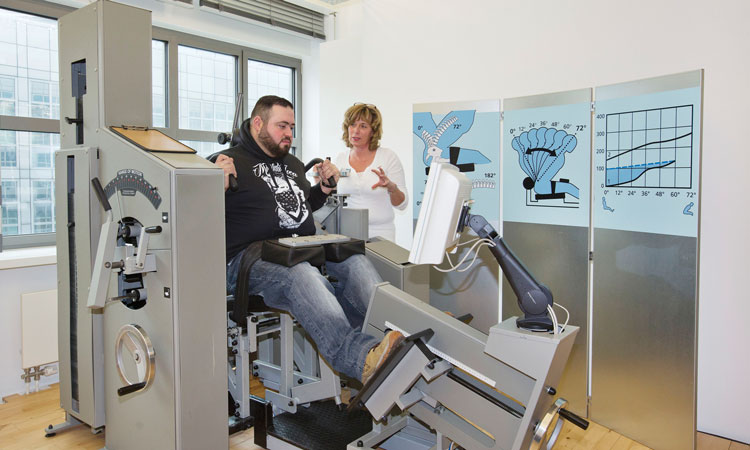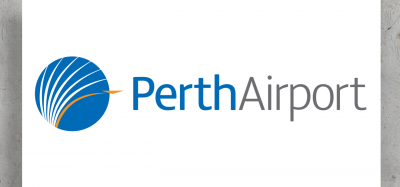The physically demanding field of ground handling
- Like
- Digg
- Del
- Tumblr
- VKontakte
- Buffer
- Love This
- Odnoklassniki
- Meneame
- Blogger
- Amazon
- Yahoo Mail
- Gmail
- AOL
- Newsvine
- HackerNews
- Evernote
- MySpace
- Mail.ru
- Viadeo
- Line
- Comments
- Yummly
- SMS
- Viber
- Telegram
- Subscribe
- Skype
- Facebook Messenger
- Kakao
- LiveJournal
- Yammer
- Edgar
- Fintel
- Mix
- Instapaper
- Copy Link
Posted: 21 October 2015 | Christian Noack | No comments yet
Hamburg Airport is a pioneer in health management for ground handling services. The work they do is diverse and full of variety, but it is also very demanding. Not a single plane could take off from Hamburg Airport if it were not for the approximately 900 employees of the ground handling services STARS, GroundSTARS and CATS. So their fitness, both physical and mental, is extremely important – especially at a time when the demands placed on ground handling services keep on growing. Christian Noack, Director of Ground Handling at Germany’s fifth-largest airport, gives an insight to an initiative they’ve launched to maintain employee fitness over the long-term.


Thorough and decisive service and maintenance programmes are in place for every item of ground handling equipment – from the simplest trolley to a high-loader or a de-icing truck. We do our best to provide our customers with the best service we can offer using optimally functional equipment. But how do we address proactive resource management for the outstanding capital resource that gives a ground handling agent its real USPs – the resource which generates more than 70% of total costs in today’s ground handling business: the operative workforce?
Baggage-related services have now become the central challenge for ground handling services. For efficiency reasons, more and more airlines are deploying ever larger aircraft and at the same time moving from container-loaded luggage to loose loading. For Hamburg’s GroundSTARS employees, this means that for every single container that was previously used, they now have to load and unload 45 individual suitcases from the cargo hold. When the average prescribed aircraft turnaround time of just 35 minutes is combined with optimised timetables and the resultant peak situations at a spoke airport such as HAM, the result is a real and ongoing challenge that demands more than just basic physical fitness.
A strong back is the primary factor. This applies for baggage and aircraft handling, but also for the pushback vehicle and bus drivers and the cabin cleaning crews. Almost one in five now suffers from back, knee, arm, or groin complaints, and younger employees are increasingly affected. Such complaints restrict their availability for duty. An innovative new programme aims to help Hamburg Airport to heal possible existing conditions at the same time as preventing wear and new health problems from developing. The concept is based on developing and maintaining real strength and deploying this strength the right way for maximum sustained effectiveness. Training and therapy are fundamental building blocks, and they are located directly in the workplace in so-called ‘training satellites’.
Off to the gym – during working hours
For a baggage loader, moving up to 1,000 suitcases in a single shift is nothing special. Sometimes it’s much more.
“If we assume a weight of 15kg per item, then we have a total of 15 tonnes of baggage being lifted, pushed, and carried each day by one person,” calculates Ozan Satilmis who has been part of the Hamburg GroundSTARS team for two years. To date, the powerfully built young man – who already goes to a private gym several times a week – has not had any physical complaints arising from his work. But, like all his colleagues, he is aware of the stress that this job can place on his back in particular. So he is very pleased indeed that a targeted training programme is now in place to avoid problems developing – free-of-charge and during working hours.
First things first: the health check
Ozan’s training satellite is just a few meters away from his workplace, but before the trainer and therapist Carolin Enge could start work with him, he had to undergo a thorough health check involving a cardiovascular examination including ECG, a blood test, and a discussion about any possible existing or previous conditions.
“Only when the tests have shown that there is no cause for concern or restriction can the training begin,” says physician Kerstin Mallien from Lifebonus Gesundheitsmanagement, the operator of the facility at Hamburg Airport. Employees are assured that no health-related data will be passed on to the employer.
Ozan has now completed his first training units which he says can sometimes fit in really well during low-traffic times. And if he is needed urgently and unexpectedly, he is back in action quickly.
Using one’s own strength the right way
“Ground handling staff are the backbone of any airport. As long as the backbone lasts,” comments Martin Hellwig, Chairman of Hamburg Airport’s Joint Works Council. The airport’s whole-body concept for preventing and treating musculoskeletal conditions was put together by a team consisting of the works physician, sports scientists, strength training experts, industrial designers, and medical specialists. There are two main pillars: developing strength with job-specific training, and deploying strength appropriately by carrying out job-specific activities the right way. A mock-up is integrated in the training satellites to enhance the effectiveness of the strength training, simulating a baggage loader’s workplace and physically demanding activities so that correct, healthy execution can be practised until it becomes automatic. The mock-up is also subject to the annual accident-prevention inspections.
Measurable decline in health-related absence
Hamburg Airport makes every effort to remove any conceivable obstacle to participation in the programme. Work clothing doesn’t even have to be removed. The programme is intended to be part of the common daily work routine. More and more employees are discovering the positive effect of the programme. Dr Antje Krueger, Works Physician and Specialist in Occupational Medicine at Hamburg Airport, says the concept is: “a medically sound opportunity to offer a practical solution to many employees, with or without musculoskeletal complaints, whereby they can actively and sustainably contribute to the process of maintaining their own health.” Work absences arising from health problems have declined measurably since the programme began. Antje continues: “The preliminary pilot project, with around 90 bus and pushback drivers, already resulted in a reduction in sick days of 41 per cent over just 12 months.” But the rewards of the training are not only seen in the workplace. “Quite naturally, it also has a positive effect on one’s private life,” says Lars Herfurth, responsible for occupational safety at the airport. “We invest in the health of our workforce, because this has a sustained positive effect both on a personal level and for the company.”
Inspiring personnel with the example of opinion-leaders
All managers, from operative shift leaders to the executive board, are opinion-leaders and have a responsibility to set an example to other employees. A specific personal training programme for managers guides and strengthens their attitude to health and helps to inspire the workforce to take part in career health promotion activities. A different health subject is presented to employees each month and there is always a clear link to health in the workplace. Different managers serve as ‘sponsors’ of the various activities. Alongside the mandatory measures of instructing and informing employees of health issues, this combined approach is the key to individual motivation within the workforce. This is the only way we can fully and sustainably implement occupational health promotion at the heart of our corporate thinking and acting.
Hamburg Airport’s pioneering role
“We are convinced that our programme fulfils the goals of the Joint German Occupational Health & Safety Strategy (GDA) adopted by the federal and state governments together with the accident insurance companies,” says Michael Eggenschwiler, CEO of Hamburg Airport. “We are demonstrating viable approaches that enable companies to address and counteract the increasing incidence of musculoskeletal conditions in an effective, sustained way.” Ralph Beisel, Managing Director of the German Airports Association, has described Hamburg Airport as a pioneer in innovative projects to reduce musculoskeletal conditions. Hamburg Airport has received several awards from the City of Hamburg for its exemplary occupational health and safety efforts.
Preparing for demographic change
Rising demand in the aviation industry, in conjunction with demographic change is having an effect on health management at Hamburg Airport in general and particularly in the area of aircraft and baggage handling, where personnel resources are already limited. The current average employee age at Hamburg Airport is 47, and the workforce is continually ageing. At the same time, the daily work performed by employees is becoming more and more complex and varied. An additional factor which cannot be ignored is that the historical motto ‘leave it to the next generation’ no longer matches reality. Various studies and reports have reached the conclusion that just 35 per cent of today’s youth are in very good health.
Hamburg Airport is responding to the new reality with an additional package of measures alongside the training and therapy concept, focusing on employee health across all divisions and departments.
This includes subsidised medical massage, a free gym for employees, a works sport facility with football pitch, tennis courts, beach volleyball court and small sports hall for table tennis for example. The works sports teams also train at this facility and receive funding from the company. Preventive health checks such as screening for skin cancer and intestinal cancer are also on offer, along with flu vaccinations. Hydraulic equipment is being introduced in baggage handling to reduce the hard physical work of carrying suitcases. A comprehensive training programme and free information packs are available to all employees, covering such matters as ‘healthy management’, ‘coping with stress’, ‘health in shiftwork’, and ‘nutritional workshops’.
We are putting our most sustainable asset – our employees – at the centre of our corporate thinking and acting. We are ensuring that our service provision is sustainable and healthy. And in this way, we are increasing motivation and having a positive effect on employees’ private lives: a win-win situation.
Biography
Christian Noack has been Director of Ground Handling at Hamburg Airport since 1 January 2007. His career began in 1994 at Ogden Aviation where he served in various leadership roles until 2001, gaining a range of experience abroad. His final position with the company was as Manager Airport Services. Christian then served as Business Manager and Project Director for various companies in the aviation industry before being appointed Manager Strategy, Planning & Marketing at Aviation Handling Services GmbH at Hamburg Airport in June 2006. He has since taken on the leadership of the entire Ground Handling Division, which includes the role of Managing Director for various subsidiaries.
Issue
Related topics
Airside operations, Baggage handling, Ground handling, Recruitment and training, Regulation and Legislation, Safety, Terminal operations
Related airports
Related regions
Related people
Antje Krueger, Carolin Enge, Kerstin Mallien, Lars Herfurth, Martin Hellwig, Ozan Satilmis, Ralph Beisel


















